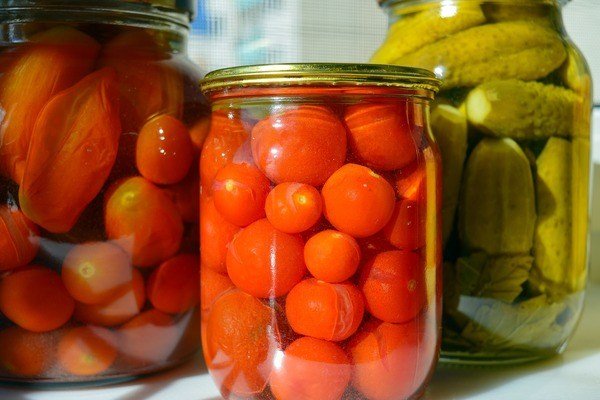
Research reveals that packaged, tinned and canned foods are mostly to be avoided by those living with high blood pressure.
High blood pressure is a frightening disease because it has few symptoms yet puts people at great risk of heart disease or stroke.
Huge numbers of people have been diagnosed but many more have hypertension and don’t know it.
High blood pressure is quite manageable with diet and lifestyle changes.
Sugar and Salt are some other things that should be avoided.
Sorry, but these two tasty food enhancers are major factors in hypertension.
“You will need to limit your intake of sugar and salt, but that doesn’t mean you have to eat only bland food for the rest of your life.’’
In general, a healthy person should not consume more than 2,300 milligrams of sodium per day. When it comes to sugar, the main concern is avoiding “added” sugar. Our bodies need sugar to function properly, but most of it should come from sources like whole fruit rather than candy or even juice.
Also to be avoided are high sodium foods. Canned vegetables, especially beans, are high in sodium because it is used to extend shelf life.
Beans that you buy dry and then soak and cook are actually a very healthy meal choice due to their protein, fiber, and anti-inflammatory nutrients.
Adding beans to your meal can help keep your blood sugar steady, too. If you must eat canned beans, you can remove up to 41% of the sodium content by rinsing them in a colander before preparing.
Premade Soup
You may be shocked to find out how much sodium is in many varieties of premade soup. It helps to bring out the flavour of noodles and vegetables that were cooked a long time ago, as well as aids in preservation.
The sodium in soup also concentrates when it is cooked and some of the water boils off. Luckily, soup is pretty easy to make at home and it tastes better, too.
If you’re really pressed for time, look for canned or bottled soups that are labeled as “low sodium” or “reduced salt.” Don’t forget to really read the label, though. The salt may be reduced from that product’s regular recipe, but maybe not enough for people with high blood pressure.
Cooked Tomato Products
Have you ever noticed how different home grown tomatoes taste than the ones you buy at the store?
That’s because tomatoes grown on a huge scale are typically modified to be firmer so that they can remain unbruised throughout picking, shipping, and stacking on the shelf. This also makes them quite bland.
That’s why canned and jarred tomato products need so much sodium to make your sauce, ketchup, and paste palatable. Making tomato-based foods and condiments at home with quality tomatoes is actually quite easy and you can enjoy the flavor you crave with a fraction of the salt.
Meat
Packaged and processed meats are also to be avoided. Packaged meats including hot dogs, bacon, sausage, and lunch meat also rely on sodium to preserve the product for a long time.
So not only are you getting food loaded with salt and preservatives, you are sacrificing the health benefits of eating fresh food.
Red meat is considered more dangerous to health than white meat, but even packaged chicken and turkey have too much sodium.
Instead, buy your meat straight from a butcher to get a fresh product that hasn’t been soaked in a giant vat of saltwater.
Frozen meals are also dangerous
Did you know that the food in frozen meals may have been cooked up to a year before you actually eat it? A massive amount of salt is used to make sure the meal still tastes mostly like food by the time you eat it.
Some brands do use high quality, low sodium recipes, but you will have to pay more. Another option is to prepare several servings of your favorite meals and freeze them yourself in single-serving containers.
Candy is nothing but sugar and empty calories, but it’s still a bummer for those of us with a sweet tooth.
To get your hypertension under control, or simply to live a healthier life, train your taste buds to find satiety in the natural sugars contained in whole fruit.
READ: Atikulated Network vows to mobilise 5m votes for Atiku
Bananas are an especially good choice because of their potassium content – potassium helps to regulate blood pressure. When you really need a splurge, opt for one small piece of dark chocolate to keep the added sugars down.
As for soft drinks, just one soda per day can push you over your daily recommended limit of added sugars, yet because you drink rather than eat them, they don’t make you feel full or satisfied.
And while caffeinated soda boosts your energy and vitality upon consumption, that feeling is very short lived and leaves you even worse off after the inevitable sugar crash.
It is better to get your caffeine from lightly sweetened tea or coffee. If it’s simply refreshment you crave, try some sparkling water with a splash of fruit juice or a sprig of mint.
Under pastries, cookies, cakes, donuts, and other baked goodies can certainly be a hard habit to break, but they are simply loaded with sugar and fat.
However, you may still be able to enjoy pastries in moderation.
When eating out, share one dessert with the whole table. When you cook at home, you can make use of a sugar substitute such as applesauce, dates, or Stevia.
Other healthier substitutes for sugar include pure maple syrup, raw honey, and coconut sugar. These are lower on the glycemic scale and also deliver important antioxidants, electrolytes, and nutrients.
Sauces. Unfortunately it’s not just tomato sauces that are high in sugar and sodium. Most bottled sauces, dressings, and condiments are loaded with sugar no matter their base.
It is important to read labels on these products, and be aware that anything marked “low sugar” may have more sodium to compensate. We encourage you to get creative at home. Fresh herbs, garlic, and olive oil may just leave you more satisfied than any bottled topping.
There is very little health value in alcohol in general, but it can be especially bad for people with high blood pressure. First, alcohol may be high in sugar itself or mixed with sugary beverages.
Second, drinking too much causes dehydration and is linked to weight gain, both of which are risk factors for hypertension. And finally, drinking more than three alcoholic beverages in a sitting will spike your blood pressure on the spot.
You probably don’t need to avoid alcohol entirely, but try to choose lower sugar options and stick with just one a day.
The bad news is that reducing the amount of sugar and salt in your diet will require some extra effort.
Preparing meals fresh at home is the best way to control your intake, but you can still use some packaged products as long as you get good at reading labels.
It will take some time to retrain your taste buds, but after awhile, you will start to gain an appreciation of the nuanced flavours in foods that aren’t dominated by sugar and salt.
That’s the good news – not only will your hypertension be kept in check, you will likely soon find that you don’t even miss foods with unhealthy levels of sugar and salt.
Source: HHResearch











